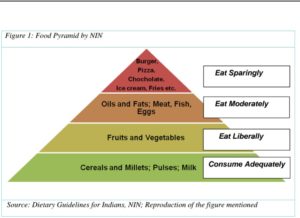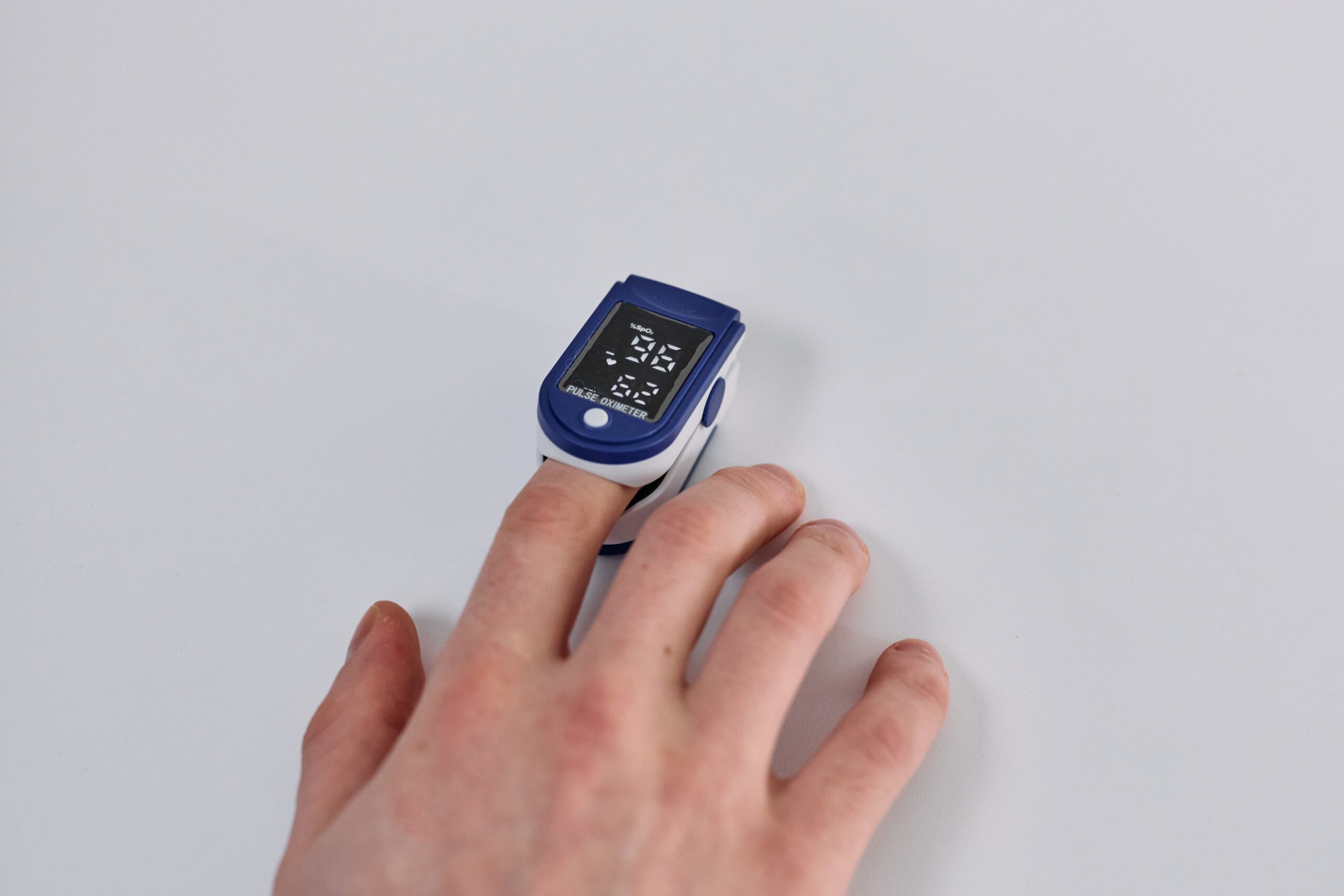Take it easy policy: easy to make, easy to consume, had made us sunk into the ocean of junk food. Only filling tummy should not be on the priority list, the food we consume should score high in the nutritional chart too. The junk food is ‘HFSS’ (high fat, sugar or salt). High level of refined sugar, white flour, trans fat, polyunsaturated fat salt and numerous food additives such as monosodium glutamate (MSG) and tartrazine, and lack of protein, vitamin and fibre in junk food are taking a toll on our health.
It is not a problem having junk food occasionally, problem crops up when it is consumed too frequently, substituting regular meals and nutrition.
What to Look before you Purchase Junk Food?
The term junk food was coined as slang in the public interest in 1972 by Michael Jacobson, Director of the Center for science, Washington D.C.
Most Common HFSS Foods are
- Chips, fried foods
- Sugar-sweetened beverages
- Sugar-sweetened beverages
- Sugar-sweetened-sweetened beverages
- Ready-to-eat noodles, pizzas, burgers
- Potato fries
- Confectionery items
One caitpot what might be junk food by looking at a food label including that it has little nutritional value and has:
- > 35% of calories from fat (except for low-fat milk)
- > 10% of calories from saturated fats
- Any trans fat
- > 35% of calories from sugar, unless it is made with 100% fruit and no added sugar
- > 200 calories per servings for snacks
- > 200 mg per serving for sodium (salt) for snacks
- > 480 mg per serving for sodium (salt) for initial meal
- If one of the first two ingredients is
either oil or a form of sugar, then it is likely a junk food. - The presence of high fructose corn syrup.
5 Reasons why Junk food is so popular
- The time factor
Quick fix method to fill tummy is the new mantra now. In fast pace life, everyone sought out for a shortcut. The most important factor for the rising of junk food is the ease of availability, simplicity and less time taking.Raising the trend of online food apps and rising craze for the door to door service of food have geared up the consumption of junk even more than before. Who would go to the kitchen and shed sweat and cook, if it can be just a simple click away! Fast foods are taking popularity by nuclear families because working parents have less time for meal preparation by themselves. Junk foods such as potato wafers do not even need cooking or heating.
Here, one point to be mentioned that term Fast foods and junk foods are often used interchangeably. But, most junk foods are fast foods as they are prepared and served fast. But not all fast foods are junk foods, especially when they are prepared with nutritious contents.
- The taste factor
It is very common in every household with kids to refuse even more than one bite of healthy food, but they always have a corner in their stomach for junk, such addictive it is. - Company strategies and Junk food advertising
Today kids are more aware of what has been introduced into the market, thanks to an attractive advertisement endorsed by renowned personalities. Moreover, the manufacturer is flooding these stuff into the market, fooling people in the name of one healthy ingredient. But, only companies know the actual percentage of that ingredient. - Shelf life
Junk food is well packaged and has a long shelf life, easy to store and can be easily transported. Most of this food may not require refrigeration. - Cost factor
The cost is less as compared to healthy food. Less cost is also a big reason for the popularity of junk food. It is easily accessible to all classes of the population due to its low and attractive price range.
4 Problems associated with junk food
- High-fat content: Saturated fats and Trans fats
The recommended daily allowance of fat is 65-80 grams. National Institute for Nutrition (2011) recommends a maximum of 2% of total calories to come from trans fats (WHO is 1%).Too much fat intake in diet will cause you to put on weight. Overweight is a risk factor to the health of the heart and causes another disease as high cholesterol deposits and occludes the lumen of blood vessels.Trans Fatty Acid (TFA): TFAs are formed during the process of hydrogenation of vegetable oils to make it semi-solid that enables longer shelf life, better form and texture. They are found to be high in bakery products and snacks that are deep-fried in hydrogenated vegetable oils. TFAs reduce the amount of good cholesterol (HDL) and increase bad cholesterol (LDL). Their consumption increases insulin resistance and promotes obesity. WHO recommends less than 1% of calories from TFAs.
- High salt content
Junk food contains a high amount of salt. Salt is the main source of sodium. High sodium consumption (>2 grams/day, equivalent to 5 g salt/day) and insufficient potassium intake (less than 3.5 grams/day) contribute to high blood pressure by stiffening and narrowing arteries including coronary and renal arteries and increase the risk of heart disease and stroke.As per WHO recommendations for salt reduction. - For adults
Adults should consume less than 5 g (just under a teaspoon) of salt per day. Lower than this is recommended for children. Cholesterol and salt can increase blood pressure, stroke and heart disease in the chain. Excessive salt can impair the functioning of the kidney too. - High sugar content
WHO strongly recommends a reduced intake of free sugars throughout the life course.In both adults and children, intake of free sugars at least 10% of total energy intake. WHO suggests a further reduction of the intake of free sugars to below 5% of total energy intake.
High use of sugar, particularly fructose, is harmful. Higher intake of sugars is directly related to obesity, diabetes, metabolic syndrome and dental caries.
- Other ingredients
Besides high in sugar, fats and sugar other additives in junk food are harmful. Caffeine used in carbonated beverages and energy the drink is an addictive stimulant, which, if consumed in excess, can lead to impaired muscle and nerve functions, dehydration and a host of other disorders. Consumption of caffeine, particularly among school children, is a matter of concern.
19 Reasons why we should avoid Junk Food
- Empty calories and Lack of energy
Why do stuff your tummy with the food which has zero nutritional value? Junk food is processed food which may soothe your taste buds, but will not nourish your body. Junk food contains only empty calories, doesn’t provide essential nutrients, like vitamins, protein and fibres. Natural antioxidants are damaged during processing of junk food which soaks up the free radicals to prevent disease. - Hypoxia: Lack of oxygen supply
Cholesterol from the junk food can occlude bronchiole by its deposition in its the lumen. Oxygen supply tends to reduce in the body which can cause some respiratory disorders. - Slows down metabolism
Our body utilises energy to burn up the food we consume. Carbohydrate, protein and fats, all require an amount of energy to metabolise. Being in refined and processed, Junk food lowers down the rate of calories burnt by the body, making it more difficult to maintain or lose weight.Cholesterol is metabolism in the liver, too much cholesterol shall put a strain on the liver and damage it a long run. - Highly addictive
Studies have found that High-fructose corn syrup (HFCS), monosodium glutamate (MSG), hydrogenated oils, refined salt, and various other chemical preservatives found in processed junk food do the same thing to a person’s brain as cocaine does. They can agitate the dopaminergic receptors and stimulate the massive release of dopamine, a neurotransmitter that helps control your brain’s reward and pleasure centre. When your brain is flooded with dopamine in such unnatural amounts, it can cause food addiction in some people. - Poor concentration
Too many fats and sugar can make you feel drowsy and fail to concentrate. Over a prolonged period of high consumption of junk food, blood flow drops due to fat accumulation, lack of vital oxygen, nutrients and protein particularly can stale their brain cells temporarily. - Risk of overeating and obesity
Fat from fatty acids affected the brain. Fatty good cause the brain to send messages to the body’s cells, warning them to ignore the appetite-suppressing signals from leptin and insulin, hormones that are involved in weight regulation. Since the body does not get the signal that it is satiated it leads to overeating which may lead to Obesity. - Diabetes mellitus
Diabetes mellitus is of two types, Type I (insulin dependent) and Type II (insulin independent). Over 90% of cases are Type II diabetes due to junk food consumption. - Hypertension
The high content of salt can lead raises the blood pressure which can cause hypertension. Primary/essential hypertension is due to obesity. - Heart diseases
Deposition of cholesterol in the blood vessels can restrict blood flow to heart and from heart. This occlusion puts an extra burden on your heart. Your heart needs to put extra efforts to pump blood through your body. Studies have also shown that as early as the age of 30, arteries could begin clogging and lay the groundwork for future heart attacks. - Dental cavities
Too frequent sugar consumption can rot your teeth. - Kidney disease
Junk food is rich in salt sugar and fat so it causes kidney impairment like polyuria, renal failure and hyperuricaemia. - Neurological disorders
Mental disorders i.e. drowsiness, laziness, dyslexia, attention deficit hyperactivity disorder [ADHD], loss of balance and lack of concentration occur due to excessive eating junk food. Lack
of vital oxygen, nutrients and proteins can damage brain cells. Eating too much junk food or food rich in trans fats can shrink the brain similar to that associated with the Alzheimer’s disease. - Skin rashes
The junk food consists of a lot of additives and chemicals which cause’s skin rashes due to hypersensitivity. - Cancer
Obese people have an increased risk of colon, breast, prostate, gallbladder, ovarian, skin cancer and uterine cancer. - Asthma
Artificial flavouring and colouring agents which is present can cause chronic pulmonary obstructive disorder to occur abundantly in junk food. - Gastrointestinal effects
Excess fats and oils along with spices added in these foods act as an irritant to gastric mucosa leading to excess secretion of hydrochloric acid, landing in gastritis. - Junk food effects on pregnancy
Studies have found that mothers who eat junk food while pregnant or breastfeeding have children who are more prone to obesity. The children are also more prone to diabetes, raised cholesterol, and high blood fat.Also, pregnant mothers who eat high sugar and high-fat diets have babies
who are likely to become junk food junkies themselves, this happens because the high fat and high sugar diet lead to changes in the fetal brain’s reward pathway, altering food preferences. - Effects of junk food on kids
Kids require adequate nutrition for growth and development. Junk binging can substitute a healthy diet intake. Eating habits develop early shall reap results throughout the lifespan. What children eat from puberty affects their risks of prostate and breast cancer. Osteoporosis and hypertension are other diseases that appear to have their earliest roots in childhood eating habits.Poor diets can slow growth, decay new teeth, promote obesity and sow the seeds of infirmity and debilitating disease that ultimately lead to incurable disease. Food containing low nutrition value tends to reduce the IQ level of children.Junk food can make young men infertile, even if they’re physically fit and in good health.Obesity in kids: Overweight children are more likely than non-overweight children to develop insulin resistance, hyperinsulinemia, diabetes and cardiovascular diseases at a younger age, which in turn are associated with a higher chance of premature death and disability. - Behavioural problems
Consumption of junk in early childhood can result in behaviour associated problem like hyperactivity, aggressiveness etc.Children are not the best judge of their food choice. It is the responsibility of school, parents and society to insulate good eating habits in kids.
Regulation of junk food by WHO: On January 21, 2011
WHO formally issued a recommendation asking for a ban on junk food in schools and playgrounds in order to promote healthy diet and tackle child obesity. Settings, where children gather, should be free from all forms of marketing of foods high in saturated fats, trans-fatty acids, free sugars or salt.
Such settings include, but are not limited to, nurseries, schools, school grounds and pre-school centres, playgrounds, family and child clinics and pediatric services and during any sporting and cultural activities that are held on these premises. Many countries have made laws on the basis of recommendations.
Also Read:
3 Super foods for Health
Benefits of eating Green/Red Chillies/Mirchi
Why junk food is not health?
Add curd as super food in your diet
Healthy sabudana khichdi recipe
Can we eat Kaju Katli in Fasts?
Milk for health & beautiful skin







